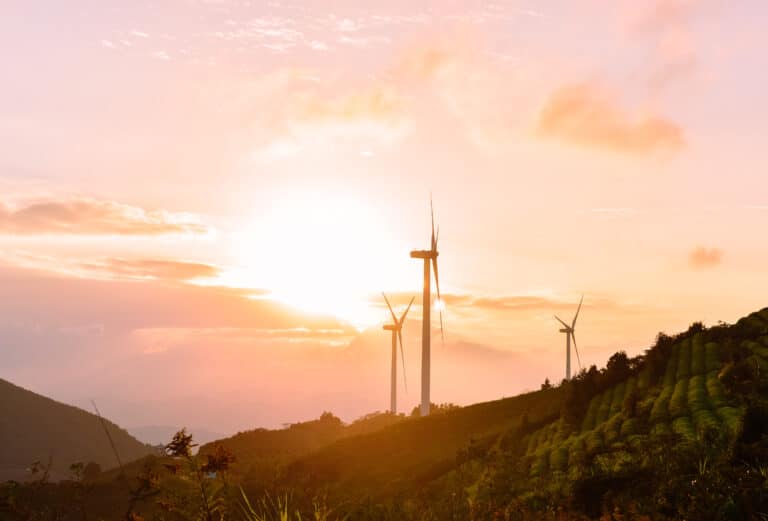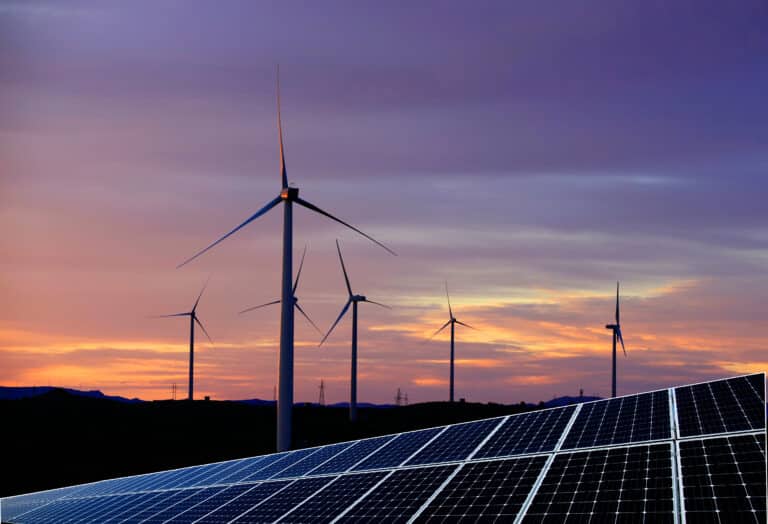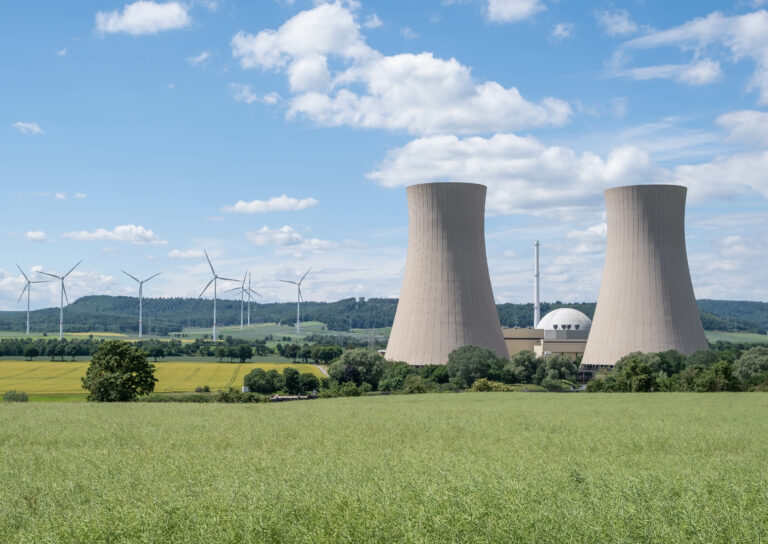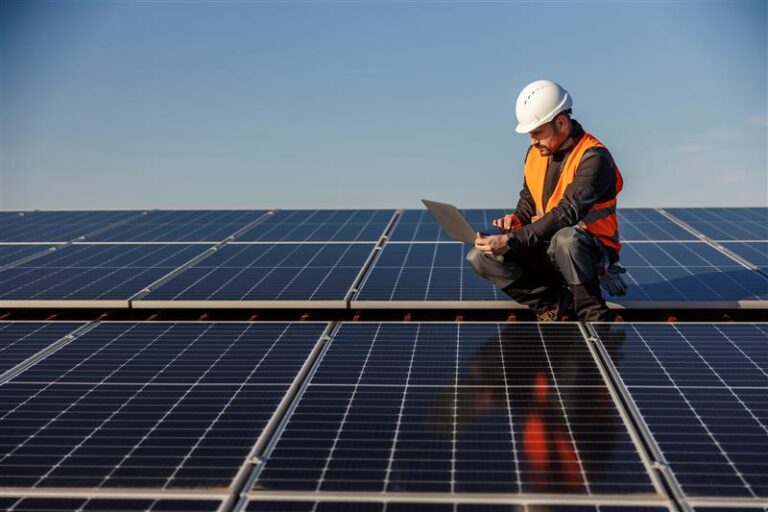Introduction
Energy prices remain a significant concern for organisations, with unpredictable costs leading many to wonder: Should I fix my energy price? Choosing between a fixed contract and a flexible contract can be challenging. In this article we’ll help you understand the pros and cons of both options, so you can make an informed decision on what is best for your organisation and budget…
What is a fixed energy contract?
A fixed rate energy tariff locks in your unit rates and non-commodity charges for a set period, typically between one and three years. This means you pay the same rate for your gas and electricity regardless of fluctuations in the energy market. While this provides peace of mind by shielding you from sudden price jumps, it could also mean missing out on potential savings if energy prices were to fall.
What is a flexible energy contract?
A flexible contract can fluctuate with the energy market, it allows you to buy your energy throughout the course of the contract in portions or tranches. This means your energy bill could increase or decrease depending on market conditions. The intention is to take advantage of movement in the wholesale energy market to minimise your energy costs. In order to make the most of this opportunity, it is key to have a purchasing strategy in place so that you can lock in proportions of your energy spend when markets are favourable. However, there is always the potential for higher bills if market rates rise unexpectedly.
Pros of a fixed contract
- Price stability
The primary advantage of a fixed contract is price stability. You’ll know exactly how much you’ll pay for your energy, which makes budgeting easier. - Protection from price jumps
If energy prices rise during your contract period, your fixed rate electricity and fixed rate gas costs remain unchanged, potentially saving you money. - Long-term planning
For those who prefer to plan their finances over the long term, a fixed rate offers certainty and peace of mind. - Potential savings
If you secure one of the best fixed energy deals before a significant market spike, you could end up saving a considerable amount over the contract term.
Pros of a flexible contract
- Benefit from price drops
If energy prices decrease, your energy bill will reflect the lower rates, which could lead to savings over time. - Allows for volume changes
If you are unsure on your expected usage, a flexible contract often allows you to reforecast up or down. - Transparency
Flexible contracts allow you to see what proportion of your spend is wholesale cost and what is made up of non-commodities or your suppliers charges. This gives you peace of mind that you are only paying what you should.
Cons of a fixed rate energy tariff
- Potential missed opportunity
If energy prices decrease, you’ll still be locked into your higher fixed rate energy tariff, potentially leading to overpayment compared with what you could have had. - Less flexibility
Once you commit to a fixed rate, you’re locked in for the duration of the contract, which limits your ability to switch if better deals arise. - Not always the best deal
Depending on when you fix your rate, you might not get the best fixed energy deal if the market conditions were unfavourable at the time of the contract. - Volume is important
If you use more or less consumption than expected, you may have to pay a penalty as the supplier has ‘fixed’ your price and consumption levels (sometimes within a tolerance band).
Cons of a flexible energy tariff
- Exposure to price increases
Your energy rates can rise if market prices increase, leading to higher bills and financial uncertainty. - Unpredictability
Budgeting can be challenging with a flexible tariff due to the variability in wholesale unit rates. - No long-term price security
Without a fixed rate, there’s no guarantee against future price hikes, which can affect your long-term financial planning. - Billing can be more complex
Flexible energy bills can look more complicated as they break out more of the unit rates.
How do I know what tariff is best?
Deciding whether to fix your energy rate depends on various factors, including your financial situation, energy usage, and market trends. Here are a few considerations:
- Current market conditions: Assess whether energy prices are expected to rise or fall in the near future, resources like Market Watch can help with this.
- Energy usage: If you have high or unpredictable energy consumption, a flexible contract might offer better potential for savings.
- Budgeting needs: If you need certainty in your monthly expenses, fixing your energy price provides that stability.
- Contract terms: Look at the terms of the contract, including exit fees and the length of the commitment.
Are energy prices likely to fall in 2025?
Predicting future energy costs is challenging, as they are influenced by several factors, including global market conditions, political events, and supply and demand.
Whilst energy markets are considerably more favourable than they have been in the recent past, there is still a lot of uncertainty that will drive volatility. Geopolitical tensions, global economics, weather and supply outages create a constantly changing energy landscape. This provides both opportunities and risks that will need to be considered.
With the increase in production of energy from ‘cheaper’ renewable sources and moving away from our reliance on gas, there is some potential for longer term price reductions. However, most analysts do not expect prices to return to the levels we saw prior to 2021. Keeping an eye on the markets, particularly monitoring any changes, is key to making the right decisions. Signing up to our Market Watch service will keep you updated with useful insights.
Conclusion
So, is it worth fixing energy prices? Choosing between a fixed contract and a flexible contract depends on your organisation’s risk tolerance, and financial goals. If you value cost certainty and peace of mind, locking in a fixed rate could be the right move. However, if you prefer the flexibility to take advantage of price drops and don’t mind some volatility, a flexible tariff might suit you better.
At Zenergi, we help organisations like yours take back control of their energy costs by leveraging our real-time market insights and market-leading expertise. Our in-house energy procurement experts work closely with you to shortlist the best supplier choices, costings, contract lengths, and types – including fixed, flex, and renewable contracts. With our support, you can make informed decisions that align with both your budget and sustainability goals.
















